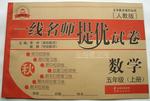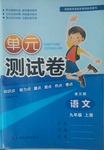9.When I was about 12,I had an enemy,a girl who liked to point out my shortcomings(缺点).Week by week her list grew:I was very thin,I wasn't a good student,I talked too much,I was too proud,and so on.I tried to hear all this as long as I could.At last,I became very angry.I ran to my father with tears in my eyes.
He listened to me quietly,then he asked."Are the things she says true or not?Janet,didn't you ever wonder what you're really like?Well,you now have that girl's opinion.Go and make a list of everything she said and mark the points that are true.
Pay attention to the other things she said.''
I did as he told me.To my great surprise,I discovered that about half the things were true.Some of them I couldn't change (like being very thin),but a good number I could-and suddenly I wanted to change.For the first time I go to fairly clear picture of myself.
I brought the list back to Daddy.He refused to take it."That's just for you,"he said."You know better than anyone else the truth about yourself.But you have to learn to listen,not just close your ears in anger and feeling hurt.When something said about you is true,you'll find it will be of help to you.Our world is full of people who think they know your duty.Don't shut your ears.Listen to them all,but hear the truth and do what you know is the right thing to do."
Daddy's advice has returned to me at many important moments.In my life,I've never had a better piece of advice.
6.What did the father do after he had heard his daughter's complaint?C
A.He told her not to pay any attention to what her"enemy"had said.
B.He criticized (批评) her and told her to overcome her shortcomings.
C.He told her to write down all that her"enemy"had said about her ad pay attention only to the things that were true.
D.He refused to take the list and have a look at it.
7.What does"Week by week her list grew"mean?A
A.Week by week she discovered more shortcomings of mine and pointed them out to me.
B.She had made a list of my shortcomings and she kept on adding new ones to it so that it was growing longer and longer.
C.I was having more and more shortcomings as time went on.
D.Week by week,my shortcomings grew more serious.
8.Why did her father listen to her quietly?A
A.Because he believed that what her daughter's"enemy"said was mostly true.
B.Because he had been so angry with his daughter's shortcomings that he wanted to show this by keeping silent for a while.
C.Because he knew that his daughter would not listen to him at that moment.
D.Because he wasn't quite sure which girl was telling the truth.
9.Which do you think would be the best title for this passage?B
A.Not an Enemy,but the Best Friend
B.The Best Advice I've Ever Had
C.My Father
D.My Childhood.
分析 这是一篇人物故事类阅读,短文主要讲述一个小女孩总是指出我缺点的,我很生气,最后向爸爸求助,爸爸建议说你也许真的是那样的人,最后证明小女孩说的一半的事情是真的,这个故事告诉我们,在我们的生活中,经常遇到很多问题需要向他人寻求建议,而有些建议你应该接受,也许它会影响你一生.
解答 6-9 CAAB
6 C.细节理解题.根据第四行Go and make a list of everything she said and mark the points that are true.去把她说的每一句都列出来,并标出真实的地方.可知,爸爸让她写下她所有的"敌人",并且只注意那些真实的东西.选C.
7 A 细节理解题.根据第一行a girl who liked to point out my shortcomings(缺点).Week by week her list grew一个喜欢指出我缺点的女孩,她的清单一周一周地增长.可知,指的是她一周又一周地发现了我的缺点,并把它们告诉了我.选A.
8 A.细节理解题.根据第二段Well,you now have that girl's opinion.Go and make a list of everything she said and mark the points that are true.好了,你现在有了那个女孩的意见,去把她说的每一句话都列出来,并标出真实的地方.及第三段I discovered that about half the things were true.我发现有一半的事情是真的.可知,父亲安静地听了她的抱怨后,让她列清单看看哪些是真的,结果一半的事情是真的,说明"因为他相信女儿的"敌人"说的大多是真的.",选A.
9 B.标题猜测题.根据最后一段Daddy's advice has returned to me at many important moments.In my life,I've never had a better piece of advice.可知爸爸的忠告在许多重要的时刻回到我身边,在我的生活中,我从来没有一个更好的建议.可知,标题可以是"我有过最好的建议". 选B.
点评 一、速读全文,了解大意知主题.
阅读能力一般指阅读速度和理解能力两个方面.阅读速度是阅读最基本的能力.考生必须在十分有限的时间内运用略读、扫读、跳读等技巧快速阅读,搜寻关键词、主题句,捕捉时空、顺序、情节、人物、观点,并且理清文章脉络,把握语篇实质.
二、看题干,带着问题读文章.
首先要掌握问题的类型,客观信息题可以从文章中直接找到答案;而主观判断题考查的是对文章的感情基调等,这类题必须经过对作者的态度、意图以及对整篇文章进行深一层的推理等.其次,了解试题题干以及各个选项所包含的信息,然后有针对性地对文章进行扫读,对有关信息进行快速定位.此法加强了阅读的针对性,提高了做题的准确率.
三、逻辑推理,做好深层理解题.
在实际阅读中,有时作者并未把意图说出来,阅读者要根据字面意思,通过语篇逻辑关系,研究细节的暗示,推敲作者的态度,理解文章的寓义.要求读者对文字的表面信息进行分析、挖掘和逻辑推理,不能就事论事,以偏概全.推理题在提问中常用的词有:infer,imply,suggest,indicate等.
四、猜词悟义,扫除阅读拦路虎.
猜词是应用英语的重要能力.它不但需要准确无误地理解上下文,而且要有较大的泛读量,掌握或认识较多的课外词汇.我们要学会"顺藤摸瓜",通过构词,语法,定义,同位,对比,因果,常识,上下文等线索确定词义.



 一线名师提优试卷系列答案
一线名师提优试卷系列答案 阳光试卷单元测试卷系列答案
阳光试卷单元测试卷系列答案